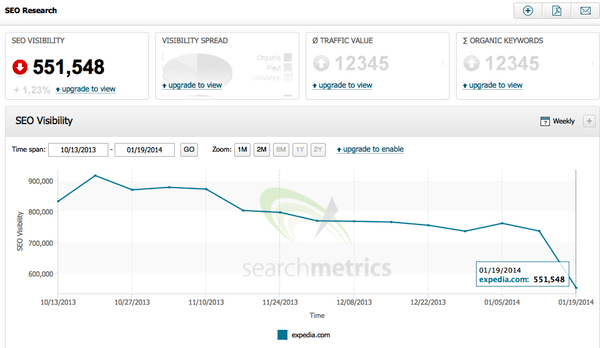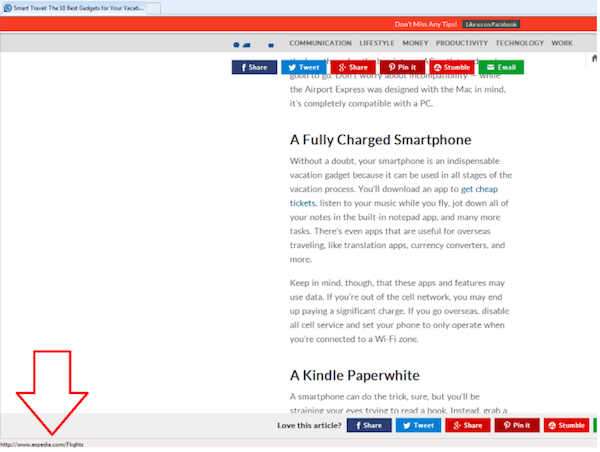Skift Take
Expedia has long argued that Google wields inordinate power, and now it is feeling Google's wrath. There will be a financial impact, and perhaps a bit of a brand hit, but this injury is far from fatal.
You’ll notice that the search engine gods, meaning the minders of Google’s algorithms and search results, aren’t rushing to deny that Google has extracted a penalty against Expedia for being involved — directly or indirectly — in a paid links scheme.
Google’s algorithms routinely and automatically weed out sites that offer spammy or low-value content, or do things such as mount pay-for-links schemes, designating questionable links as “follow” links so page rank gets inflated and a company’s keywords inappropriately ascend in organic search results.
But, at times — and there have been many well-documented cases — Google will go in manually and punish a company for clearly violating Google’s SEO best practices, and this has clearly happened in the Expedia case.
This doesn’t mean that Expedia itself consciously sought to game the system with a paid links scheme.
It is also possible that someone working for Expedia, or even a sub-contractor carried out the black-hat tricks.
The visibility of Expedia’s search engine results are estimated to have been downgraded by around 25% (see Search Metrics chart at right) because of Google’s manual intervention, and spanking.
Based on the news that Search Engine Land broke January 20 about an Expedia paid links scheme, Expedia’s share price fell around 4.17% to $67.75 for the day at the Nasdaq close January 21.
In cases like this, Google notifies the company that it has been penalized, and once that target company rectifies its bad-SEO practices by removing the paid links or taking other remedial steps to right the situation, it can file a reconsideration request, in other words, a review, with Google.
It could take several days or even much longer for Expedia to get questionable tactics like the following fixed:
Nenad SEO pointed to the blog post above, which describes how having a fully charged smartphone is one of the 10 best travel gadgets to bring on vacation. But, magically within the post, it just so happens to mention that a traveler “can download an app to get cheap tickets.” And, guess what? The words “cheap tickets” link to Expedia.com even though the subject of the post has little or nothing to do with Expedia.
For companies like Expedia or anyone else, Google won’t immediatley flip a switch, make nice and restore search results to their previous prominence once the paid links practices have been corrected.
As any parent knows, punishments aren’t meaningful unless they sting, and the impact is felt for awhile.
I did a Google search for “cheap flights” this afternoon, and Expedia was absent in organic search results on the first page. There was plenty of Cheapflights.com, Cheaptickets.com, Kayak, BookingBuddy, Orbitz and Travelocity — but no Expedia.
Once Expedia fixes the problem and in essence applies for reinstatement into Google’s good graces, then it could take days or even weeks for order to be restored, and then even more time for Expedia’s organic search results to recover.
The impact of Google’s punishment could linger, and that’s why Wall Street took the Expedia stock down a peg today.
The Daily Newsletter
Our daily coverage of the global travel industry. Written by editors and analysts from across Skift’s brands.
Have a confidential tip for Skift? Get in touch
Photo credit: A Google search for "cheap flights" found plenty of Cheapflights.com, Cheaptickets.com, Kayak, BookingBuddy, Orbitz and Travelocity on the first page of organic search results -- but no Expedia. Google has penalized Expedia for getting caught up in a paid links scheme. PlaceIt by Breezi


